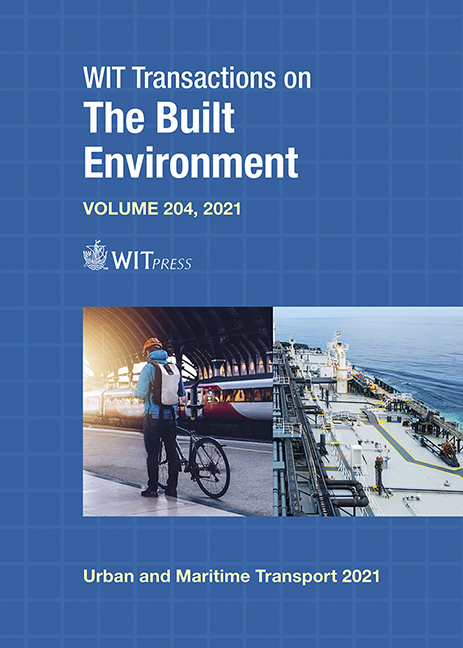IMPACT OF COVID-19 ON SHARED MOBILITY: A STUDY OF BANGALORE, INDIA
Price
Free (open access)
Transaction
Volume
204
Pages
12
Page Range
131 - 142
Published
2021
Paper DOI
10.2495/UT210111
Copyright
Author(s)
GARGI GHOSH
Abstract
Shared mobility has been documented as one of the most common urban transport services and one of the fastest growing service markets of recent times. In India, the shared mobility market was poised to grow at a CAGR of 13.7% in the period 2019–2025 with a fleet size of two million units in 2019.However, the global pandemic has had an extraordinary impact on the shared mobility space. Bangalore is one of the most prominent metropolises of Asia. The city is India’s Silicon Valley, and attracts people from all across the country. Planning for mobility is an important aspect of a growing metropolis, and Bangalore appears to be an excellent area for exploratory research. This study presents the challenges and opportunities presented by the COVID-19 on shared mobility in Bangalore. The World Health Organization (WHO) has recognised the novel coronavirus thereafter called COVID-19, as the greatest pandemic in a century. The global pandemic has impacted human activity in unprecedented ways. Working situations have changed globally with a significant segment of workers moving to remote working situations. Schools, colleges and other educations institutions have fast adapted to the online mode. Leisure trips have taken a back seat. In light of these significant changes in lifestyle several research works in the field of urban transportation highlight the changing travel pattern and preferences of the urban users. The study presents the user perceptions towards shared mobility modes and changed travel patterns in Bangalore in the wake of COVID-19 through a user survey. The study includes a documentation of the government issued COVID related standard operating procedures (SOPs), altered travel patterns, perceived and real barriers to travel and the attitude of users to shared mobility.
Keywords
COVID-1, user perception, shared mobility, bike share, rideshare, car share, ride splitting, ride sourcing, Bangalore





